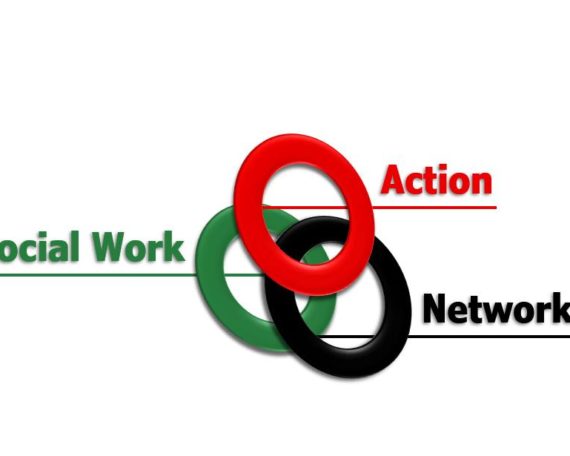The Adoption Reform Programme and more recently, the Queens speech, denote a rationale in which the adoption process will be sped up and under performing local authorities will be shamed with their published scorecards. Political rhetoric has moved at a frenetic pace with new policies and ministerial announcements being made on an almost bi-monthly basis. Ministers have blamed slow performing placements on ethnic barriers put in place by overtly politically correct social workers. This flawed argument by the government oversimplifies a diverse range of divergent (unique) needs required for Black Asian and Minority ethnic children, alongside those who are mixed ethnicity. 
It has been over 30 years since ethnicity was made a secondary consideration. Children were once placed in any home, regardless of ethnic or cultural differences, and White British adopters were praised and regarded as the saviours of unwanted ‘Black’ children. Courageous anti – racist campaigners spoke out against the zeitgeist and brought the complex and nuanced considerations for Black Asian and Minority Ethnic Children to the forefront. Drawing upon the experiences of those placed transracially, it was shown that love was not enough [3]. Experiences of self – harm to desperately remove skin colour, highlighted the difficulties children experienced as they struggled to negotiate who they were in the midst of racial socialisation constructed by adopters and society. Terms such as colour-blindness were coined and amendments to legislation and policy guidance conceded that due consideration of a child’s religious, cultural and ethnic needs should be made [4]. What is now portrayed as political correctness by the current government, was in fact a response to the misunderstanding of BAME identity.
The recent adoption reform programme, introduces an intention to revise adoption guidance and reduce the number of BAME children in the looked after system. They will introduce their ‘flagship’ initiative, adoption scorecards [5]. According to the government’s research brief, the issue is further complicated by the rising numbers of mixed ethnicity children, who are deemed “too problematic to view as a meaningful group” (Selwyn et al., 2008: p.3) [6]. Whilst, it is true that the needs of mixed ethnicity children are more complex than originally understood, the government’s attitude suggests that if something is too difficult to fathom, then they will scandalously remove its importance. Furthermore, it displays a disregard for existing legislation and guidance, which instructs professionals to act in accordance with the ethnic and cultural considerations of the child.
The government continues to misinform the political arena with misrepresented statements about the cultural and ethnic needs of BAME children, particularly the needs of mixed ethnicity children. In this context the governments research brief states that these children do not experience “the same daily battles around culture or ethnicity.” This evidence is incorrect and the original study conducted by Caballero et al., (2008: p. 58) at London South Bank University actually states that,
“It would seem that mixed families, as with minority ethnic families generally, would benefit from policies and professional practices that focused on a broader and more nuanced understanding of diversity, and on further tackling negative assumptions, discrimination and prejudice based on race, ethnicity and faith.” [7]
The government’s attempts to disable the needs of BAME children, particularly those of mixed ethnicity, is not a move forwards but a regression back to an inadequate care planning for ‘looked after children’. The anti-racist movement and the alliances built with social work practitioners, campaigned relentlessly and wrote powerful articles to make positive change. Their work forged the underpinnings of an anti racist practice and values that SWAN works to defend. Unfortunately, such positivity is at risk of being lost to a government that denotes political correctness as something wrong, who fail to understand the complexities of combatting oppressive practices. Their equity is low and their construction of positive outcomes reveals an implicit bigotry. For this government, anything too problematic for an oppressive majority, is simply an irritation to their status quo.
The contradictions highlighted in this article uncover the shaky foundations on which the government’s adoption reform is based. A point further exposed by the OFSTED report entitled ‘Right on Time’ (2012: p. 32) which states, “There was little evidence of delay caused by an unrealistic search for a ‘perfect’ ethnic match.” The intentions of this government, will potentially have major implications for social work practitioners, looked after children and families who will be inadequately prepared to understand and support children as they negotiate their identity, ethnic rejection, racism and heritage. Children who will one day become adults who will struggle to find their sense of belonging in the world.
As a collective, we must not let this governments misrepresentations, play on words and over simplification cause vulnerable children to be placed in situations where they will continue to be pathologised because of the wrong frame of analysis, the wrong agenda and the wrong government making decisions on fragile futures.
—-
Adoption Time line
Adoption Reform Programme
When in the last year alone cuts of £1.86bn were made to Children’s Services across the country [8] the Con-Dem’s great policy initiative for vulnerable children is their early removal by the state and placement through adoption at minimal cost to the public purse. The Adoption Reform Programme has moved at a frenetic pace with new policies and Ministerial announcements being made on an almost bi-monthly basis. The declared rationale has been to speed up the adoption process. Here is a reduced timeline of some of these initiatives:
February 2011 amended Adoption Statutory Guidance issued
July 2011 Appointment of Martin Narey as the Ministerial Adviser on Adoption
October 2011 Publication of Adopters Charter
December 2011 Adoption Expert Working party set up with brief to provide recommendations to streamline the adoption process
December 2011 Publication of Children in Care and Adoption Performance Tables
March 2012 Announcement of Adoption Action Plan
April 2012 OFSTED announces new Inspection Framework of Adoption Agencies
(All these policies can be accessed through the Department of Education website.)
What are the Ministers saying?
Michael Gove on 23rd February 2012:
“One particularly sensitive element of the matching process is, as you all know, matching by ethnicity…I won’t deny that an ethnic match between adopters and child can be a bonus. But it is outrageous to deny a child the chance of adoption because of a misguided belief that race is more important than any other factor.’’
David Cameron on 9th March 2012:
“Every child deserves the love of a stable family – and that’s why I’ve made sorting out and speeding up adoption in this country a priority…So this government is going to tear down the barriers that stop good, caring potential adoptive parents from giving a home to children who so desperately need one.”
—-
References
[1] The Guardian 15th November 2011
http://www.guardian.co.uk/society/2011/nov/15/social-care-children-40-percent-cut
[2] Ramesh (2011) Adoption review to focus on black children in care. The Guardian
[3] Gorham, C. (2006) The Colour of Love. In: Harris, P. (eds)., (2006) In: In Search of Belongings: Reflections by transracially adopted people. London: British Association of Adoption and Fostering
[4] Children Act (1989); Small, J. (1991) Ethnic and Racial Identity Adoption within the United Kingdom. Adoption and Fostering Journal. 15 (4), pp 61-6
[5] Pemberton (2012) Ministers to launch controversial adoption score cards. Community Care
[6] Selwyn et al., (2008) Pathways to Permanence for Black, Asian and Mixed Ethnicity Children: Dilemmas, Decision-Making and Outcomes.
[7] Caballero, C., Edwards, R and Puthussery, S. (2008) Parenting ‘Mixed’ Children: Difference and Belongings in Mixed Race and Faith Families. York: Joseph Rowntree Foundation
[8] The Guardian 15th November 2011
http://www.guardian.co.uk/society/2011/nov/15/social-care-children-40-percent-cut

